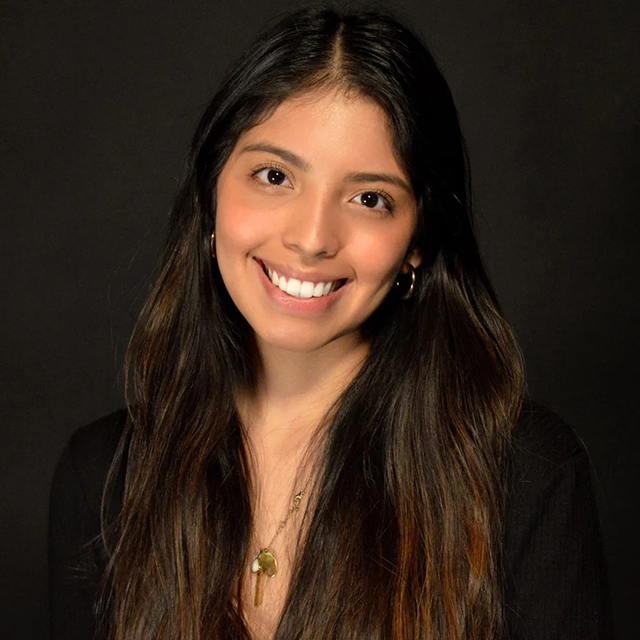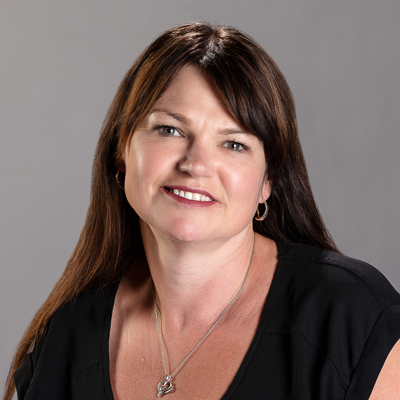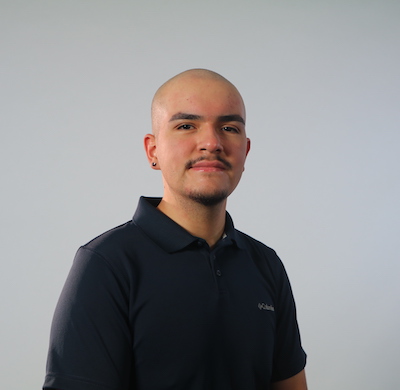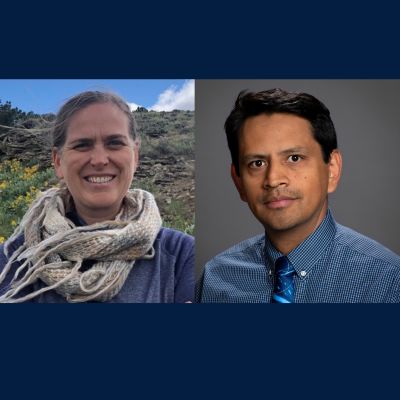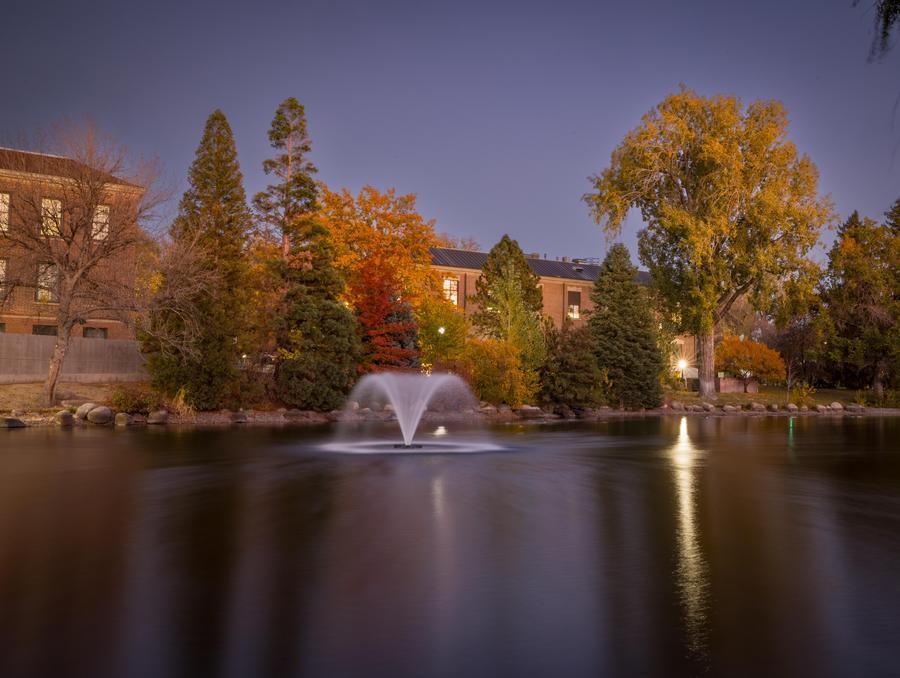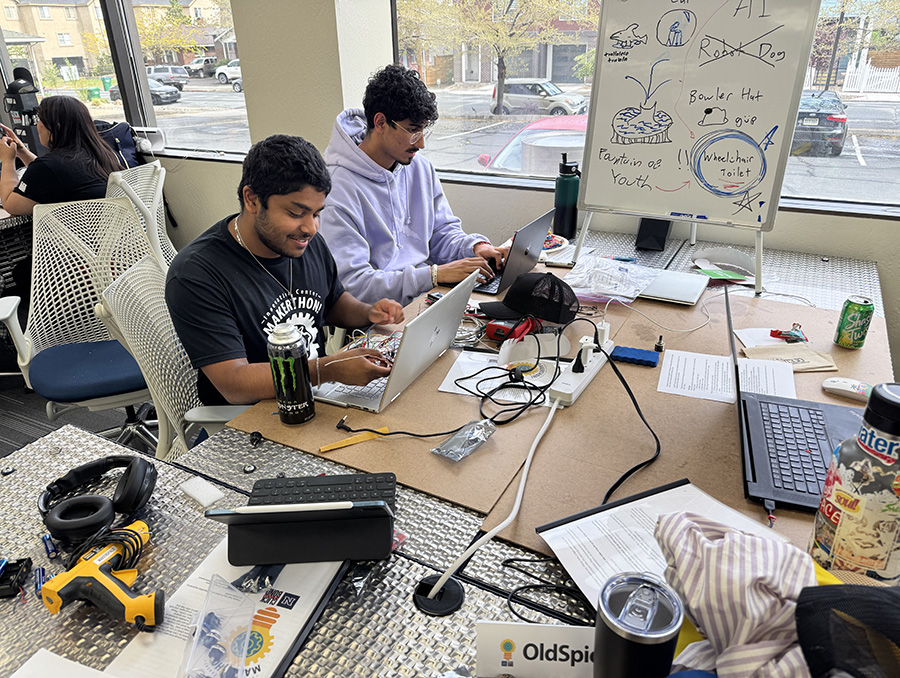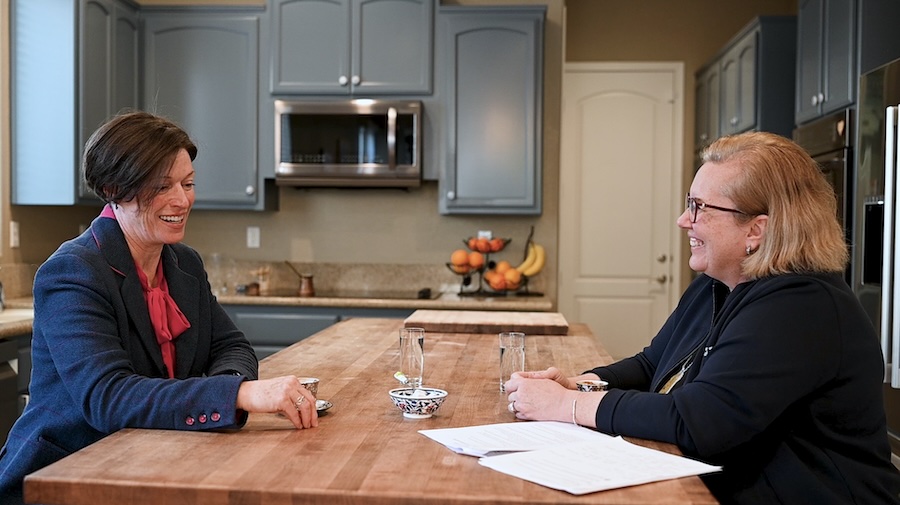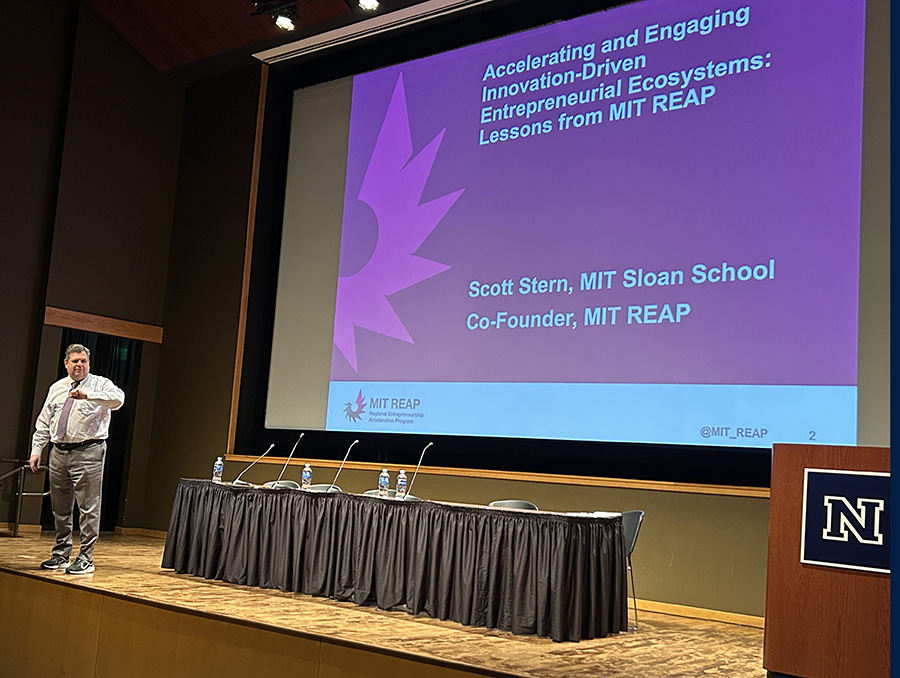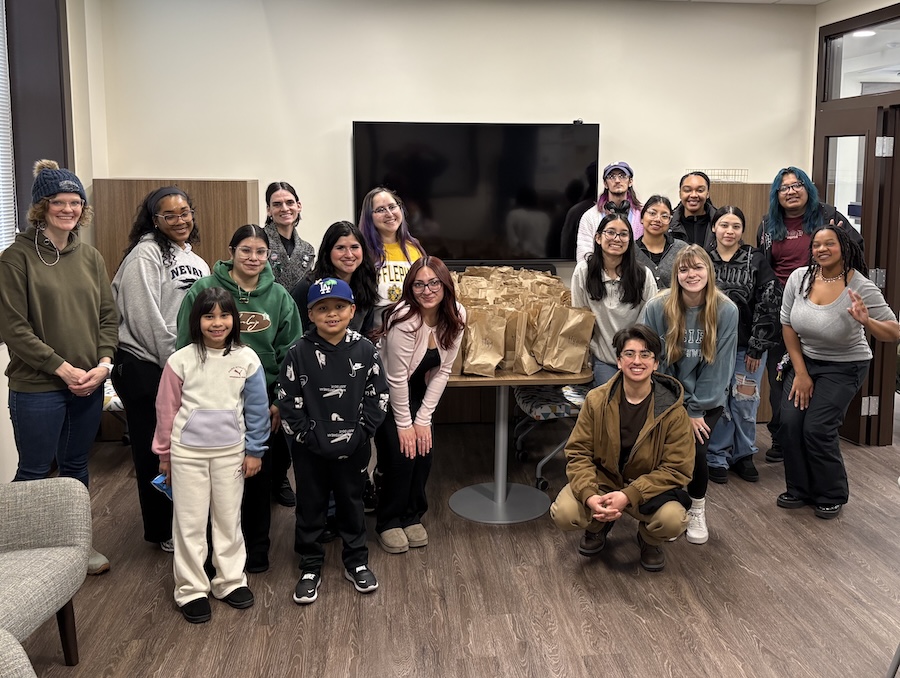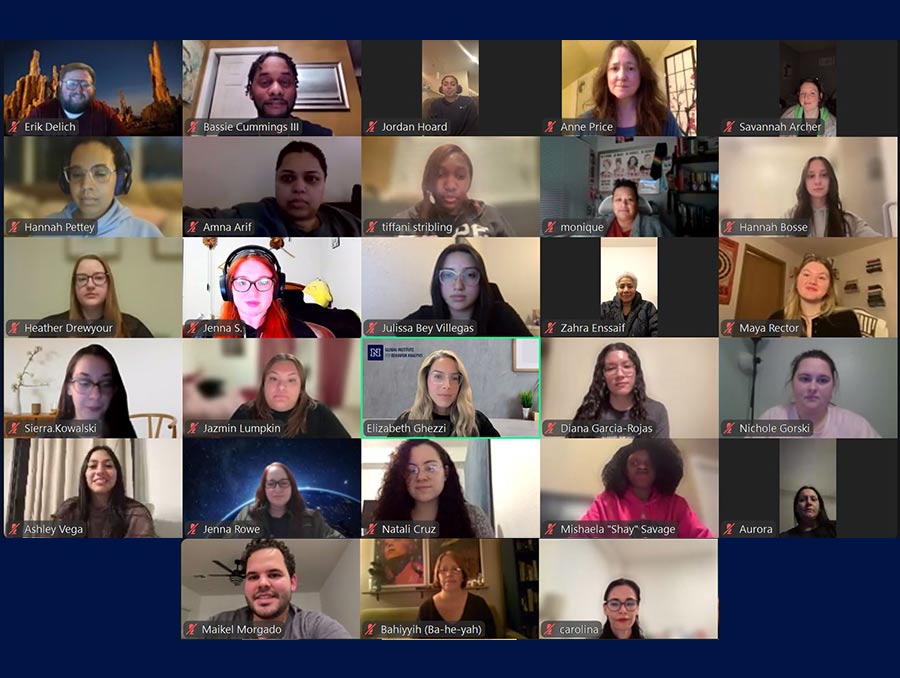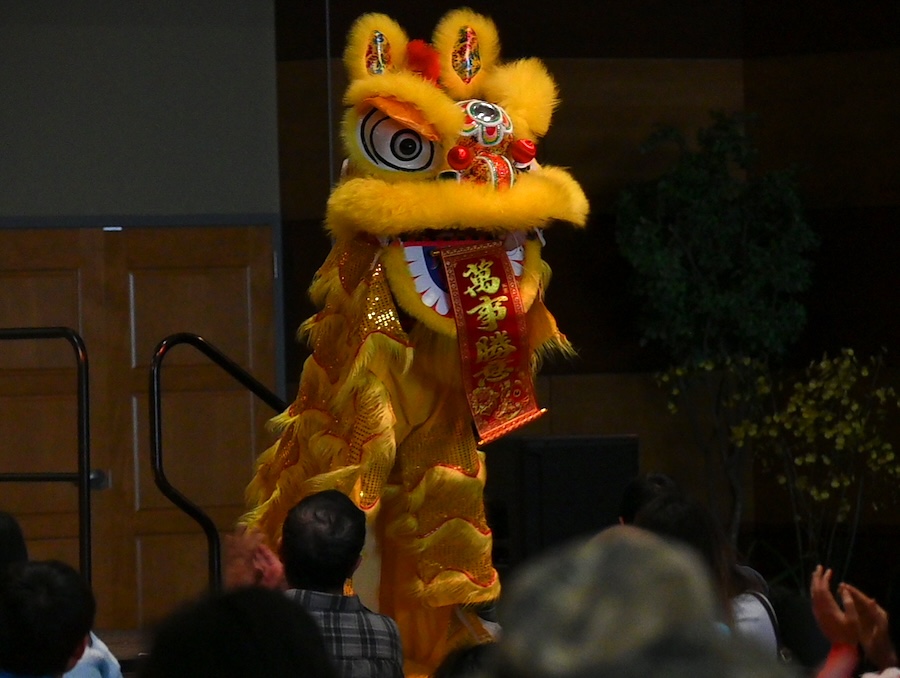NevadaFit prepares new College of Agriculture, Biotechnology & Natural Resources students for academic success
Journalism student Natalie Castro gains news experience reporting on NevadaFIT
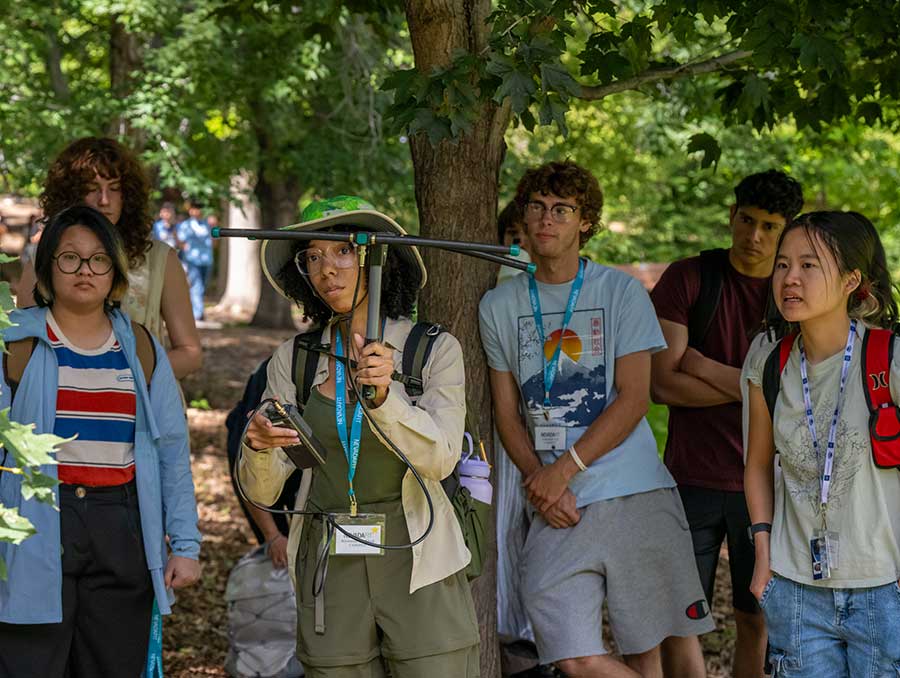 The College’s natural resources & environmental science majors kicked off NevadaFIT with a telemetry lab at Rancho San Rafael Regional Park. The freshmen learned how animals in the wild are marked and recaptured to bring back data. Photo by Robert Moore.
The College’s natural resources & environmental science majors kicked off NevadaFIT with a telemetry lab at Rancho San Rafael Regional Park. The freshmen learned how animals in the wild are marked and recaptured to bring back data. Photo by Robert Moore.
The College of Agriculture, Biotechnology & Natural Resources (CABNR) at the University of Nevada, Reno welcomed incoming freshmen to the CABNR-FIT boot camp for academic success, a six-day intensive program designed to help students transition into college life.
- CABNR-FIT mentor Garrison Weems shares his insights on the telemetry lab for new students in the Department of Natural Resources & Environmental Science.
- As part of the lab, wildlife ecology & conservation majors got into groups for hands-on learning, team building and fun.
- Under the guidance of Professor Patricia Ellison, Department of Biochemistry & Molecular Biology students explore the lab and equipment with excitement.
- CABNR-FIT students Gianna Giron and Amira Miller share how NevadaFIT and the lab experiment has benefitted them before the school year.
- Students in the Department of Nutrition dived deep into the benefits of fiber in their lab with Didactic Program in Dietetics Director Jolyn Wirshing. The highlight? Students enjoying freshly made oat pancakes!
- CABNR-FIT students Avery Monroe and Star Schaefer are excited to share what they learned in the nutrition lab.
- CABNR-FIT mentors Kat and Kailynn share how the Main Station Field Lab is a great experience for students to explore majors in the Department of Agriculture, Veterinary & Rangeland Sciences.
- Teaching Assistant Professor Hannah Rodriguez explains the students will be learning about the anatomy of the ruminant digestive system in cattle.
- CABNR-FIT students Benji and Masima were excited to expand their knowledge by inserting their hand inside the cannula of a cow, with the assistance of veterinarian and Assistant Professor Hannah Rodriguez.
The program, aimed at students majoring in agricultural science, biochemistry & molecular biology, biotechnology, environmental science, forest ecology & management, rangeland ecology & management, wildlife ecology & conservation, nutrition, and veterinary science, offered a glimpse into the University's academic expectations and campus resources.
On the first day, natural resources & environmental science majors kicked off the program with an outdoor activity at Rancho San Rafael Regional Park. The freshmen participated in a telemetry lab about capturing animals in the wild that are marked and recaptured to bring back data.
On day two of CABNR-FIT, biochemistry & molecular biology students conducted experiments in a lab session led by Professor Patricia Ellison.
The next day, students majoring in nutrition participated in a lab about the benefits of fiber in human diets. They learned about insoluble and soluble fiber and created their own recipe card. The session also involved a delicious activity — preparing and eating oat pancakes.
The final day brought veterinary science majors to the College’s Main Station Field Lab, where they engaged in hands-on learning with sheep, cattle and even insects. One of the highlights was the chance to learn about the ruminant anatomy of cows, including the unique opportunity to examine the texture of a cow's stomach by inserting a hand into it.
Throughout the week, CABNR-FIT students were introduced to professors who were eager to welcome them to the College. The experience not only provided students with academic insights and the tools to thrive in their studies, but also a sense of community among students and faculty.
By the end of the boot camp, the freshmen were more prepared, informed and excited to begin their academic journey at the University.
About the author
Natalie Castro is a public relations and communications intern with the College of Agriculture, Biotechnology & Natural Resources.
She’s a student in the Reynolds School of Journalism, earning a bachelor’s degree in journalism with an emphasis in public relations and advertising, and College of Liberal Arts, earning a minor in communication studies.

